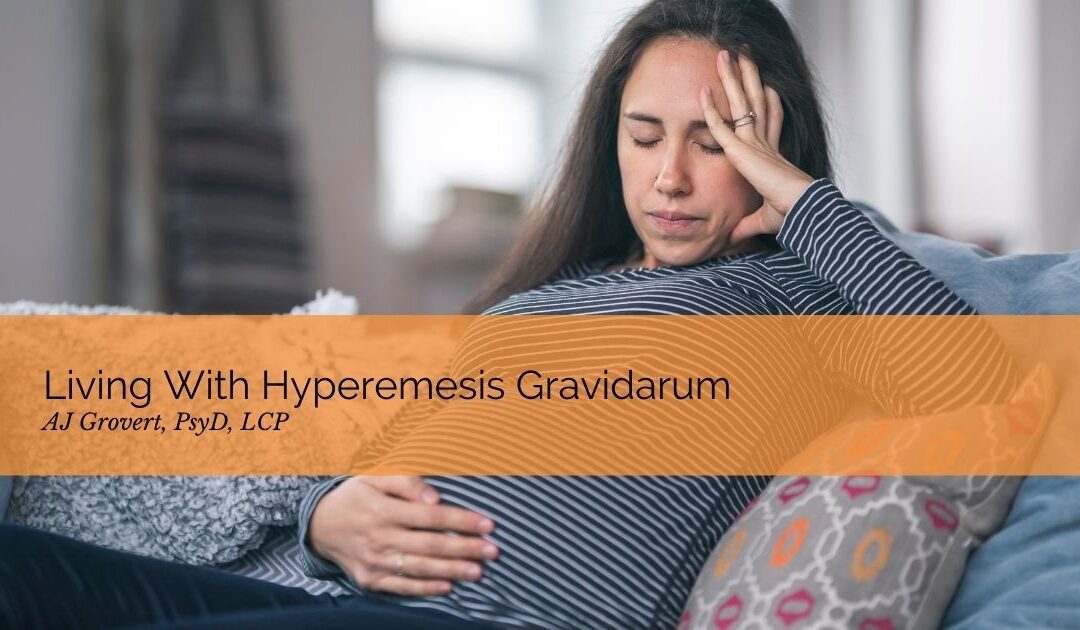I am a clinical psychologist with over a decade of experience treating anxiety, depression, and trauma. One of my focus areas over my career has been the perinatal period, the weeks just before and just after birth. I am also one of the 1-2% of people with hyperemesis gravidarum, or HG, in pregnancy.

“Morning sickness,” the misnomer applied to nausea and vomiting of pregnancy, is quite common, occurring in upwards of 70% of pregnancies. It typically fades by the second trimester of pregnancy and varies widely in severity. HG is characterized by severe nausea and vomiting multiple times a day. It can result in significant weight loss, lead to dehydration, interfere with work and family duties, and result in hospitalization to receive vital nutrients and fluids.

People with HG are more prone to anxiety and depression before and after birth. It’s more important to seek out support during what is already a vulnerable time. HG can complicate feelings about pregnancy and parenthood, and honestly, it’s miserable! I can say from experience, though, that it will get better. Quality medical care and having space to talk about what it feels like are tremendously helpful, whether with supportive friends and family or in a therapy office. Living with HG isn’t something you need to “tough out,” it’s a debilitating medical condition, and support is out there.
Photo Credits:
Photo by Daiga Ellaby on Unsplash
Photo by Dominik Martin on Unsplash




